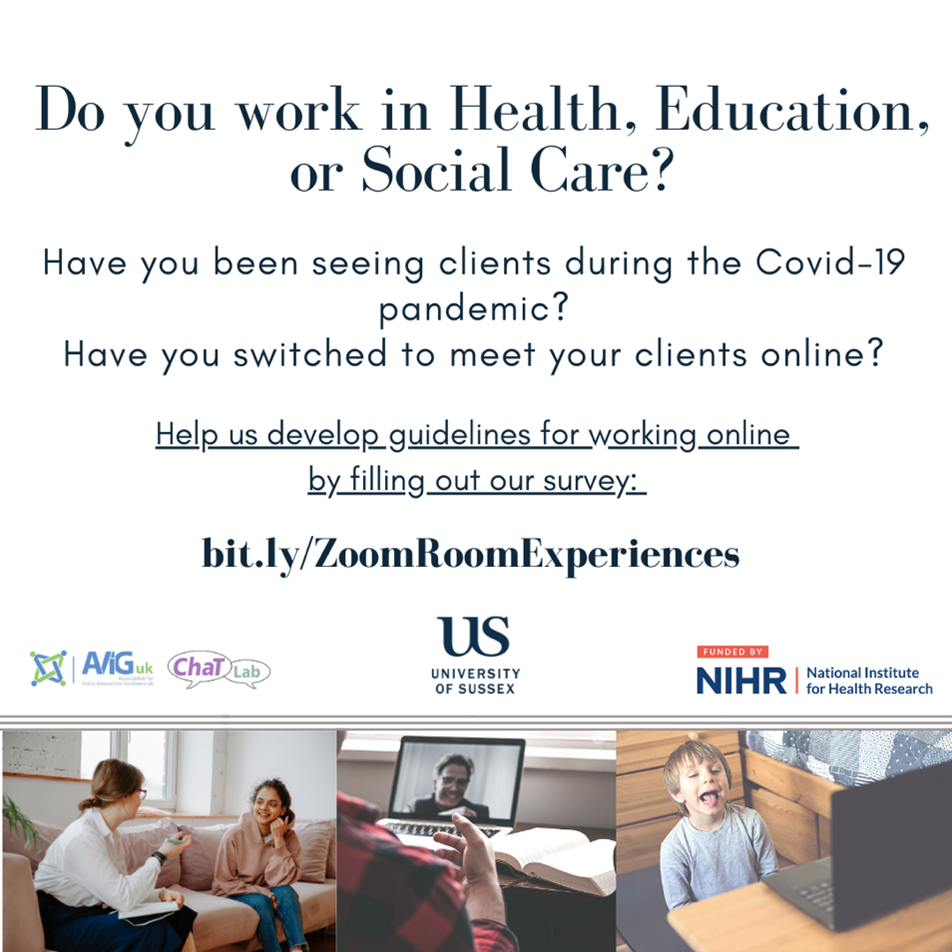Coronavirus has caused disruption to our lives in many ways. The restrictions on in-person contact pushed many workplaces online. Practitioners in health, education, and social care, whose practice had before been deemed unsuitable for online working, had to adapt quickly. Almost overnight, services typically delivered in person were offered to clients online. From children at school, University students, people receiving mental health therapies, to one-to-one parent training or group-based support sessions.
Ensuring continuity of care and education during an uncertain and turbulent time has been one of the drivers for holding therapeutic and educational meetings remotely. But the speed of the transition meant there was little systematic evidence or guidance. Practitioners needed to improvise and respond hurriedly to service demands. Many practitioners did this creatively and with innovation, but with limited evidence of effectiveness or best practice.
Even with in-person meetings being resumed, many are still being held online or using a blended approach, involving both in-person and online contact. For some services, we can anticipate further shifts to online delivery. Remote therapeutic and well-being services have the potential to reach more clients, aid efficient and cost-effective service delivery, reduce our impact on the climate, and improve accessibility. Some people have enjoyed the comfort and convenience of having appointments in their own home, though the looser boundaries between home and clinic can be a blessing and a curse. Some clients who were previously hard to reach have been able to engage, but equally, a minority of people suffer from a digital divide. In 2018, 10% of the adult UK population were not online.
The Zoom or Room project, funded by the National Institute for Health Research (NIHR), is comparing experiences of online, compared to face-to-face delivery in a specific intervention, Video Interaction Guidance (VIG). VIG is ideal for this purpose because it focuses on improving communication within relationships via video feedback methodology. Creating attuned interactions between the client and practitioner, which are filmed for reflection and supervision, is the foundation of VIG.
The Zoom or Room project has three parts:
- We are recruiting VIG practitioners and supervisors to share their recordings of their video-recorded interactions for analysis of attuned interaction.
- We are interviewing VIG practitioners and supervisors to gain qualitative information about their experiences and beliefs of the opportunities and challenges in online delivery.
- We are distributing two surveys about the use and experience of face-to-face and online delivery. The surveys are aimed at a wider range of practitioners and clients who are meeting online across education, health and social care.
Our first survey is out now for practitioners working in mental health, education, and social care, who meet clients face-to-face or online. These meetings can be for any purpose and might include general check-ins, recovery meetings, therapy, support sessions, assessments, clinical interventions, or play sessions.
By participating in the Zoom or Room project, you will help us learn about the efficacy, accessibility, and challenges of online compared to face-to-face delivery. You will also be contributing to guidelines for meeting and working with clients online, to inform future service provision across health, education and social care.
The Zoom or Room project is hosted by Professor Nicola Yuill in the Children and Technology lab at the University of Sussex and is funded by the National Institute for Health Research (NIHR), via the Applied Research Collaboration Kent Surrey Sussex Academic Health Science Network.
- Zubeida Dasgupta, Educational Psychologist and AVIGuk practitioner and trainer
- Professor Nicola Yuill, School of Psychology, University of Sussex
- Devyn Glass, Research Fellow, School of Psychology, University of Sussex

